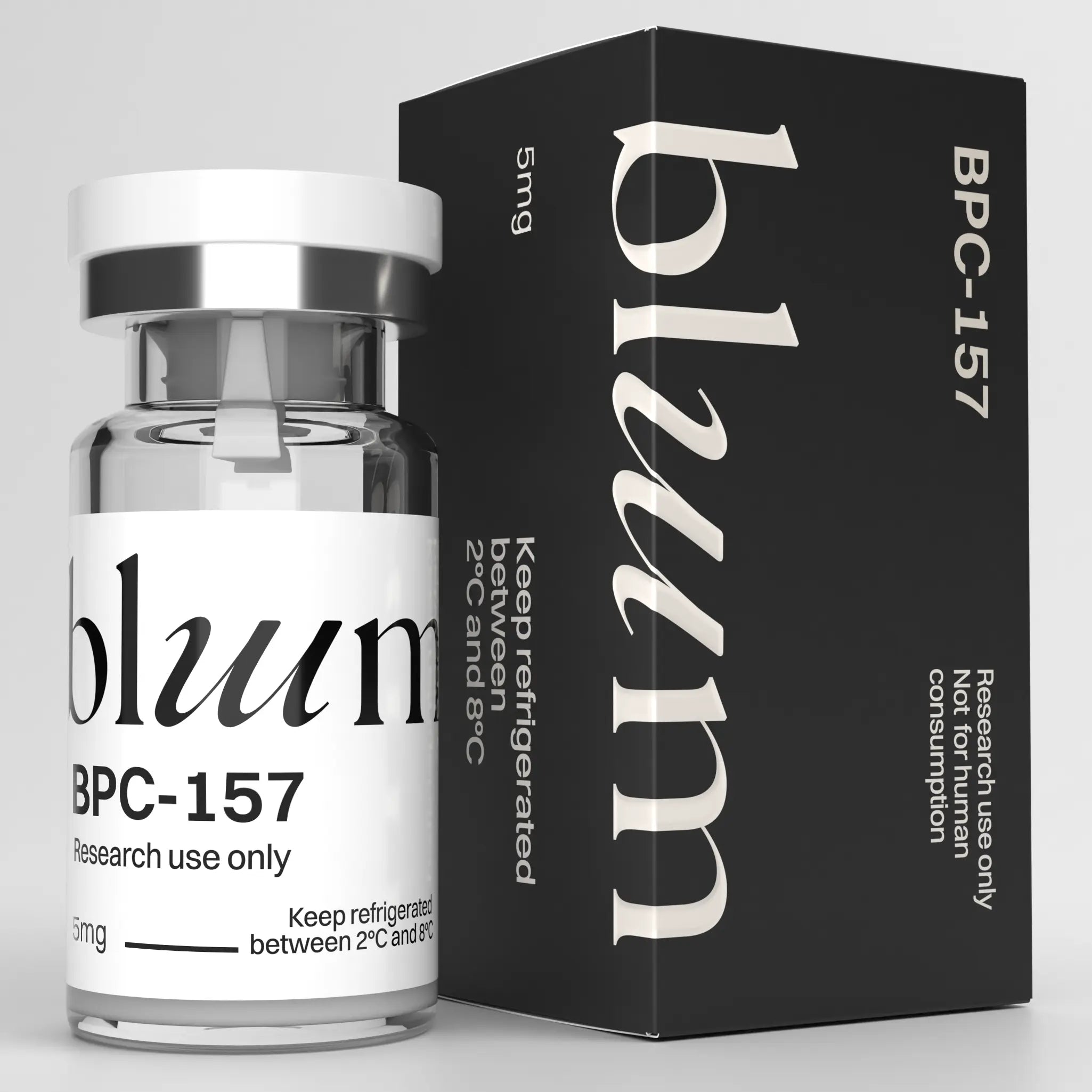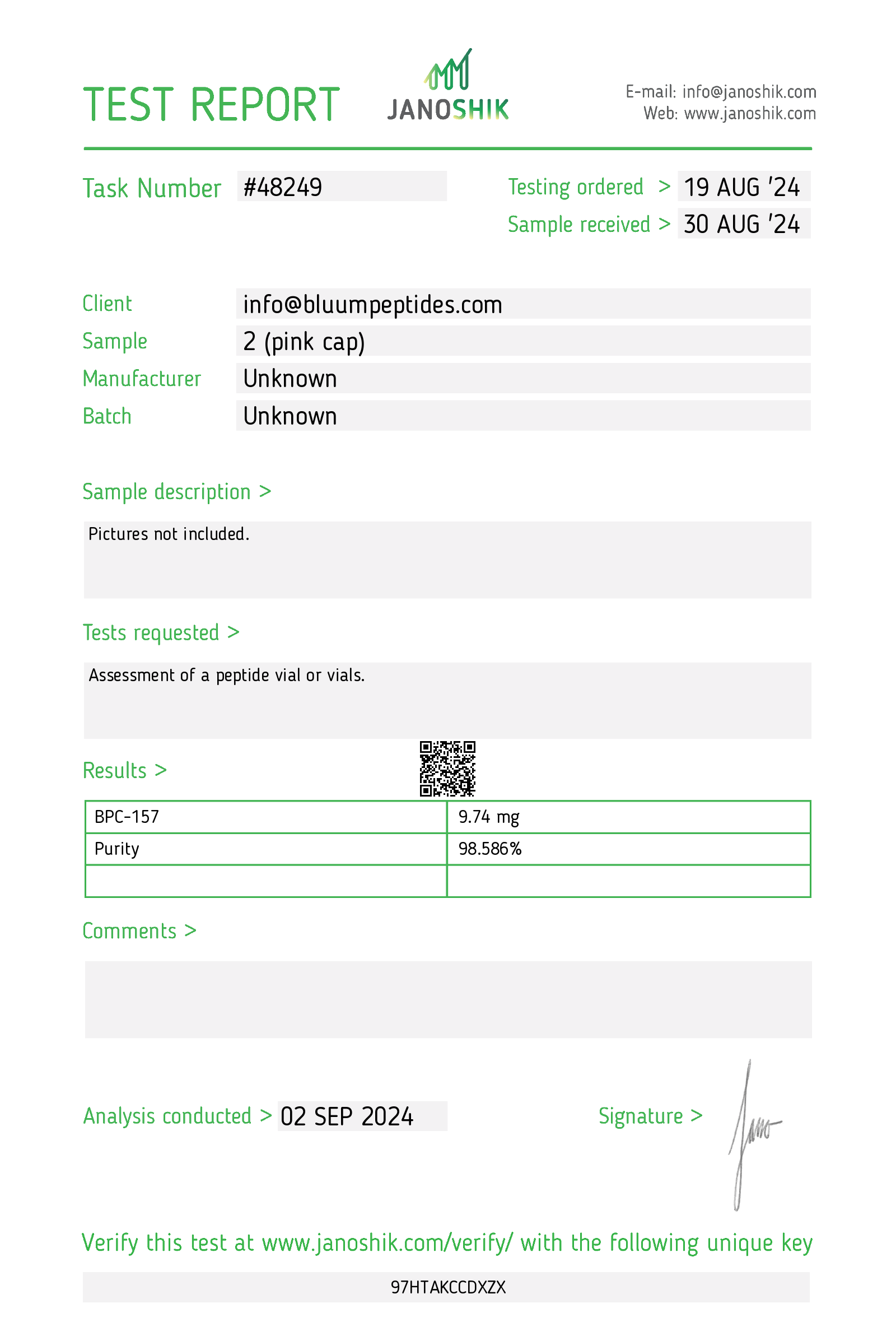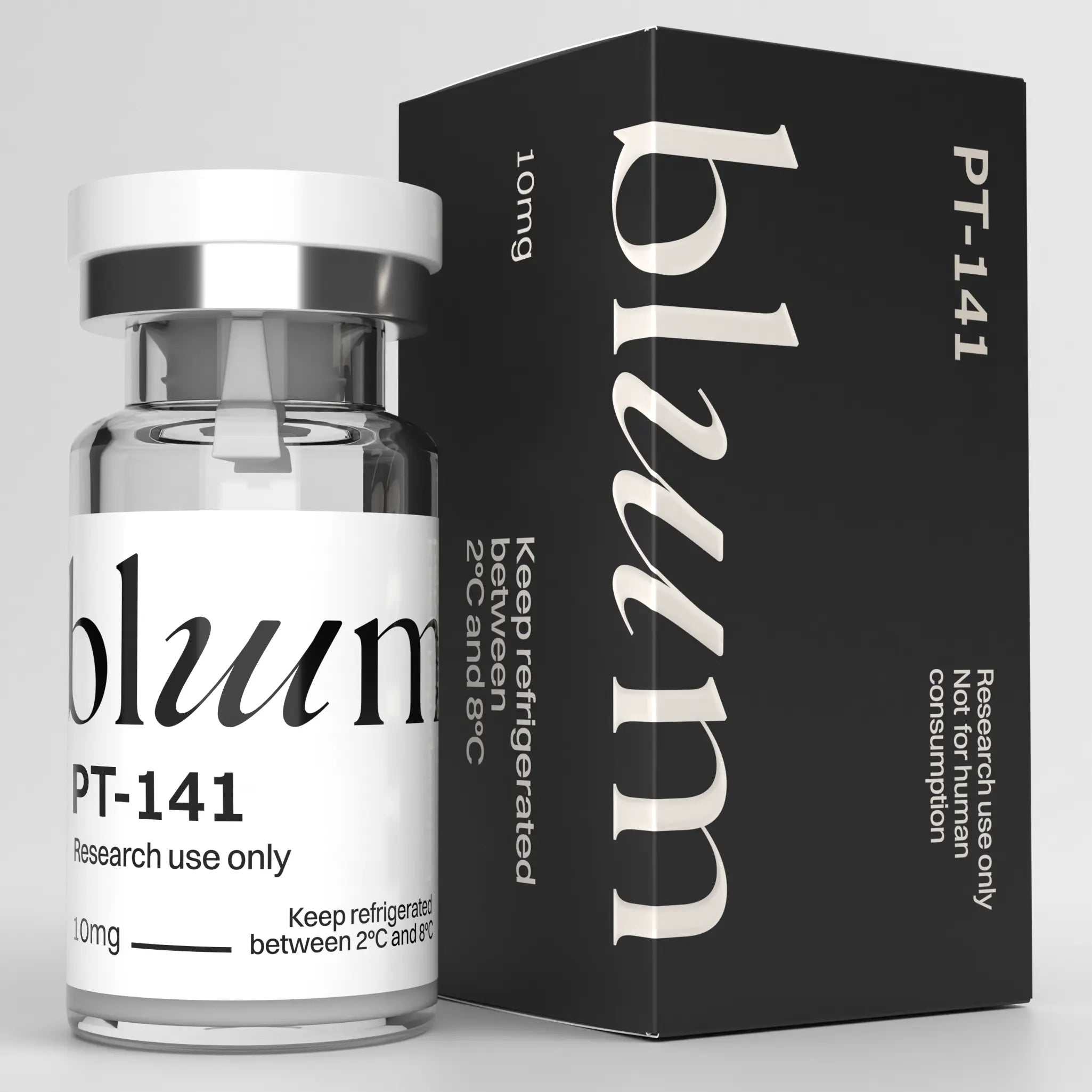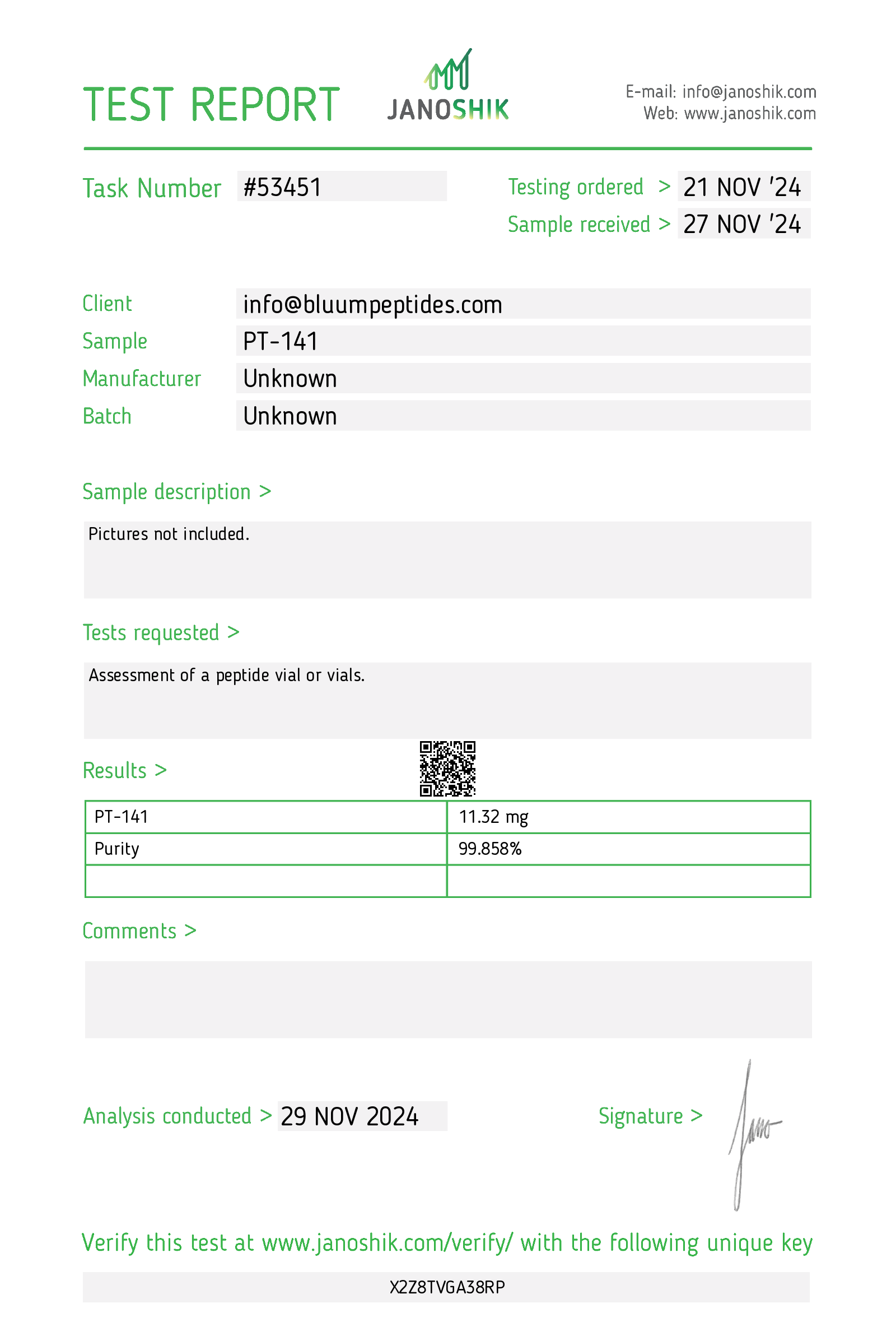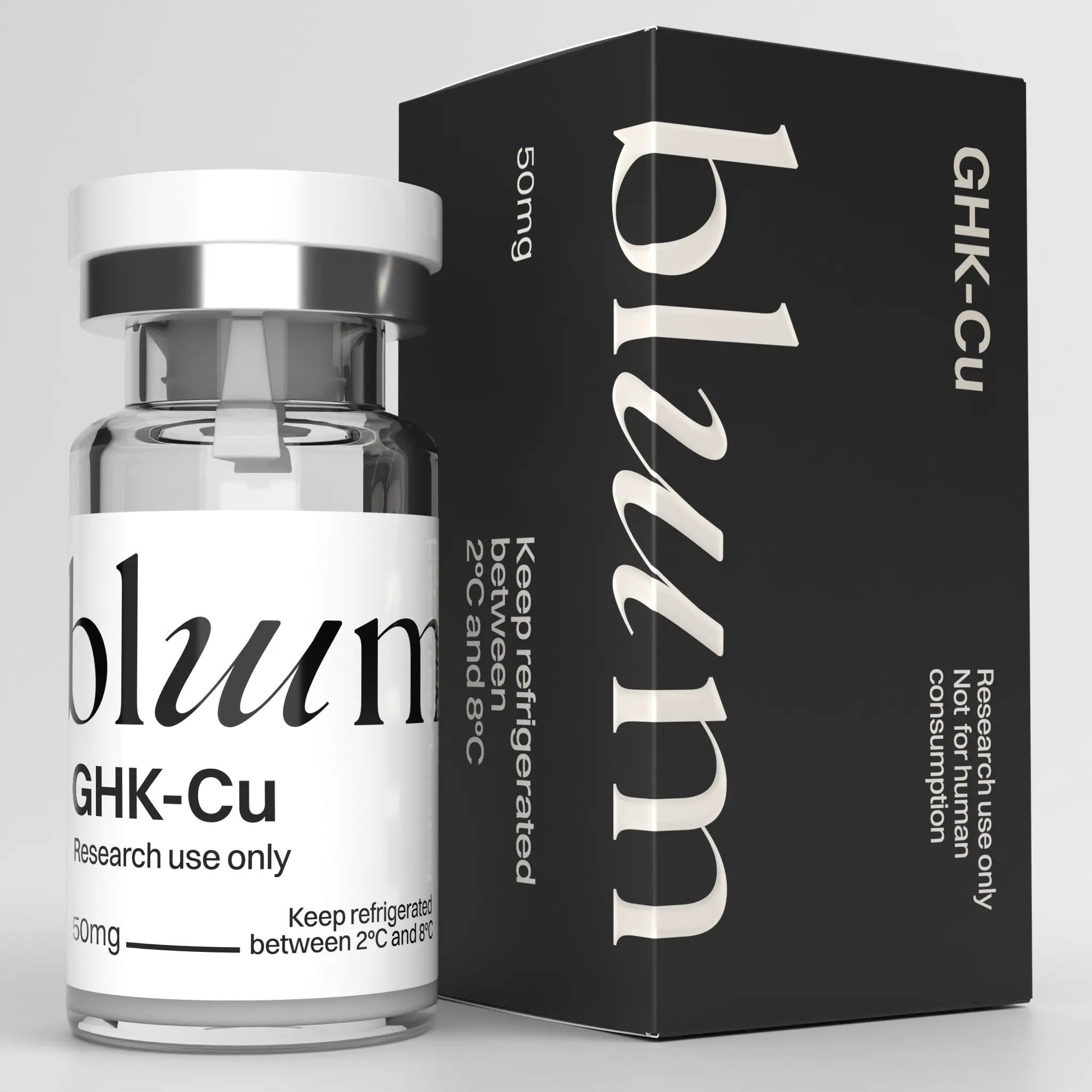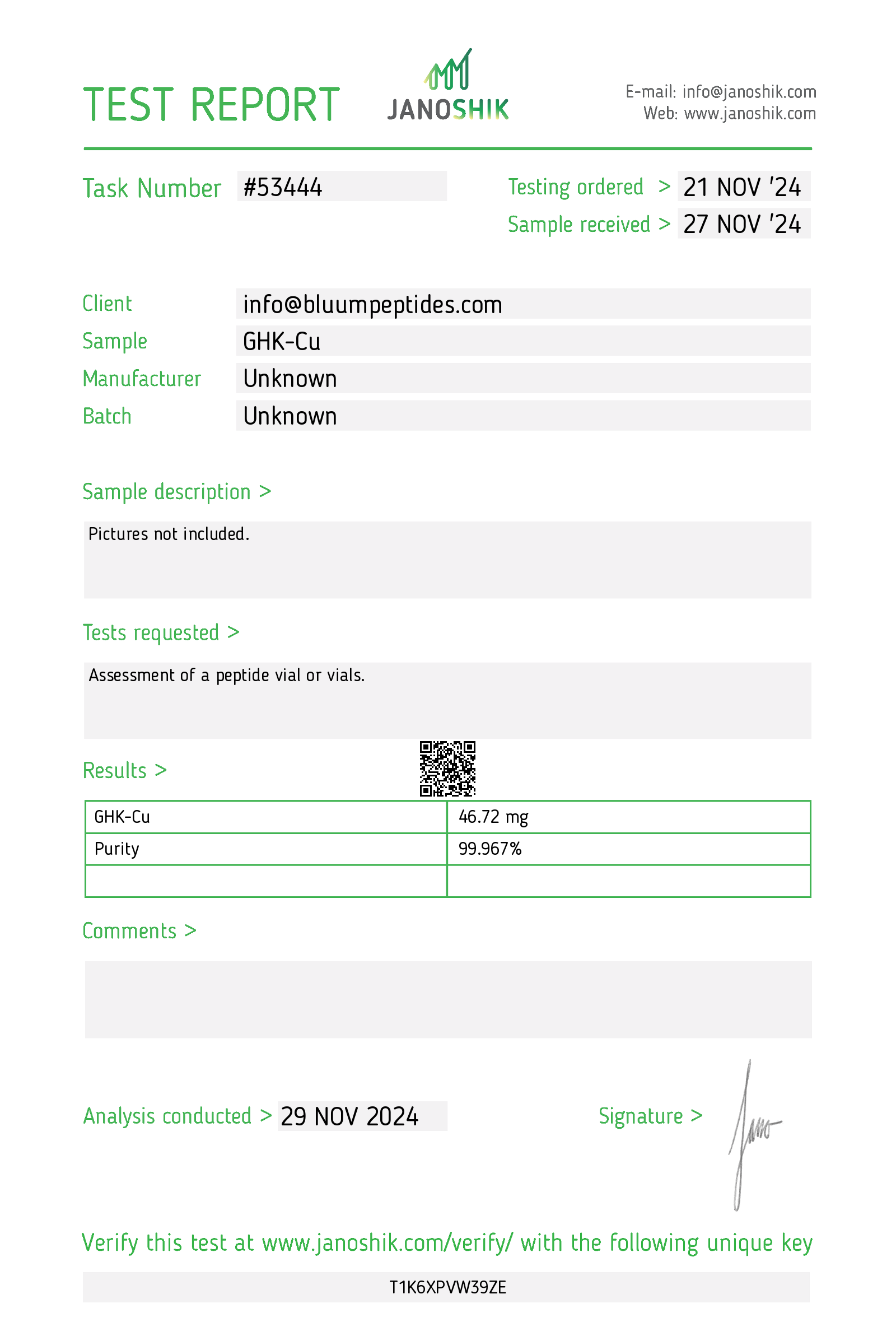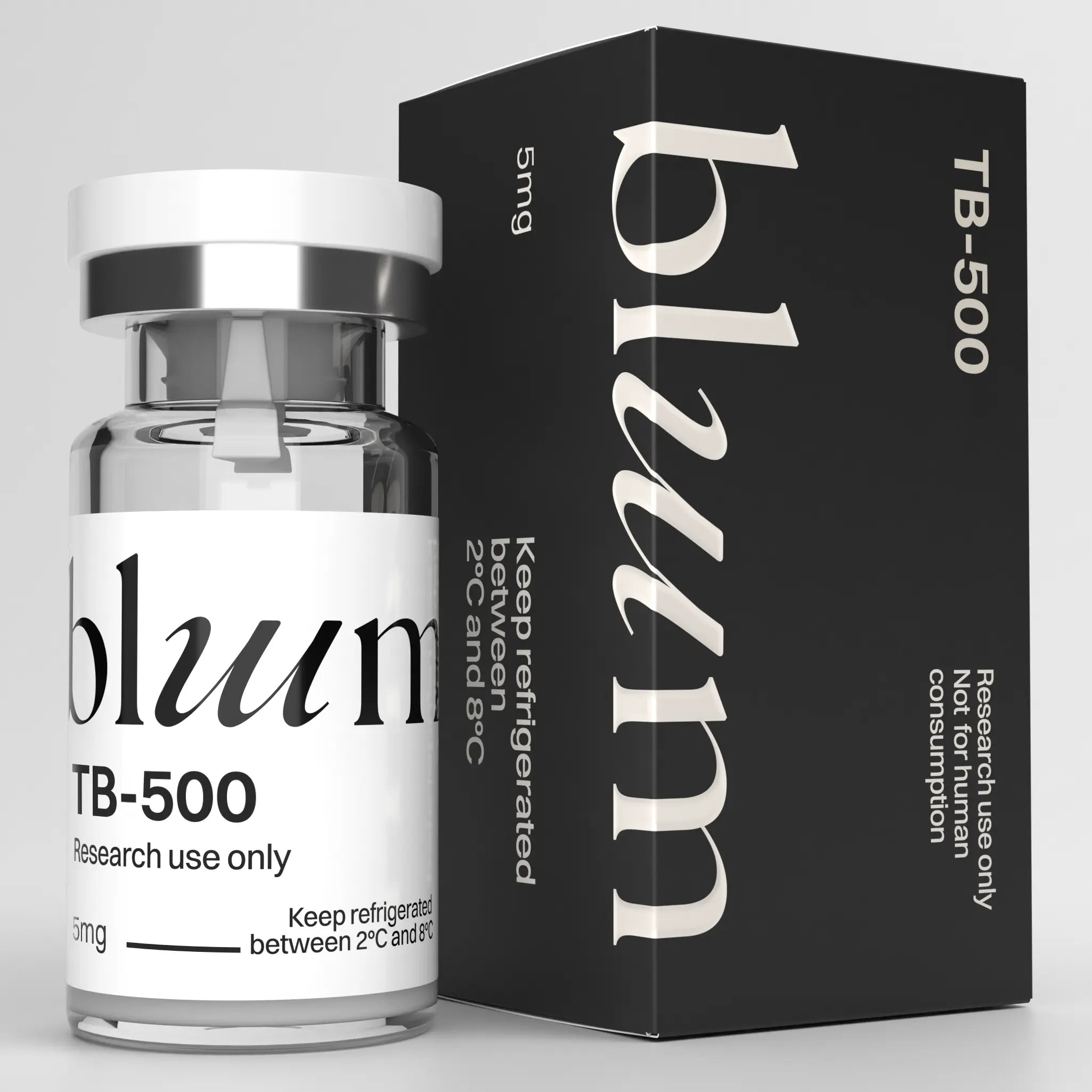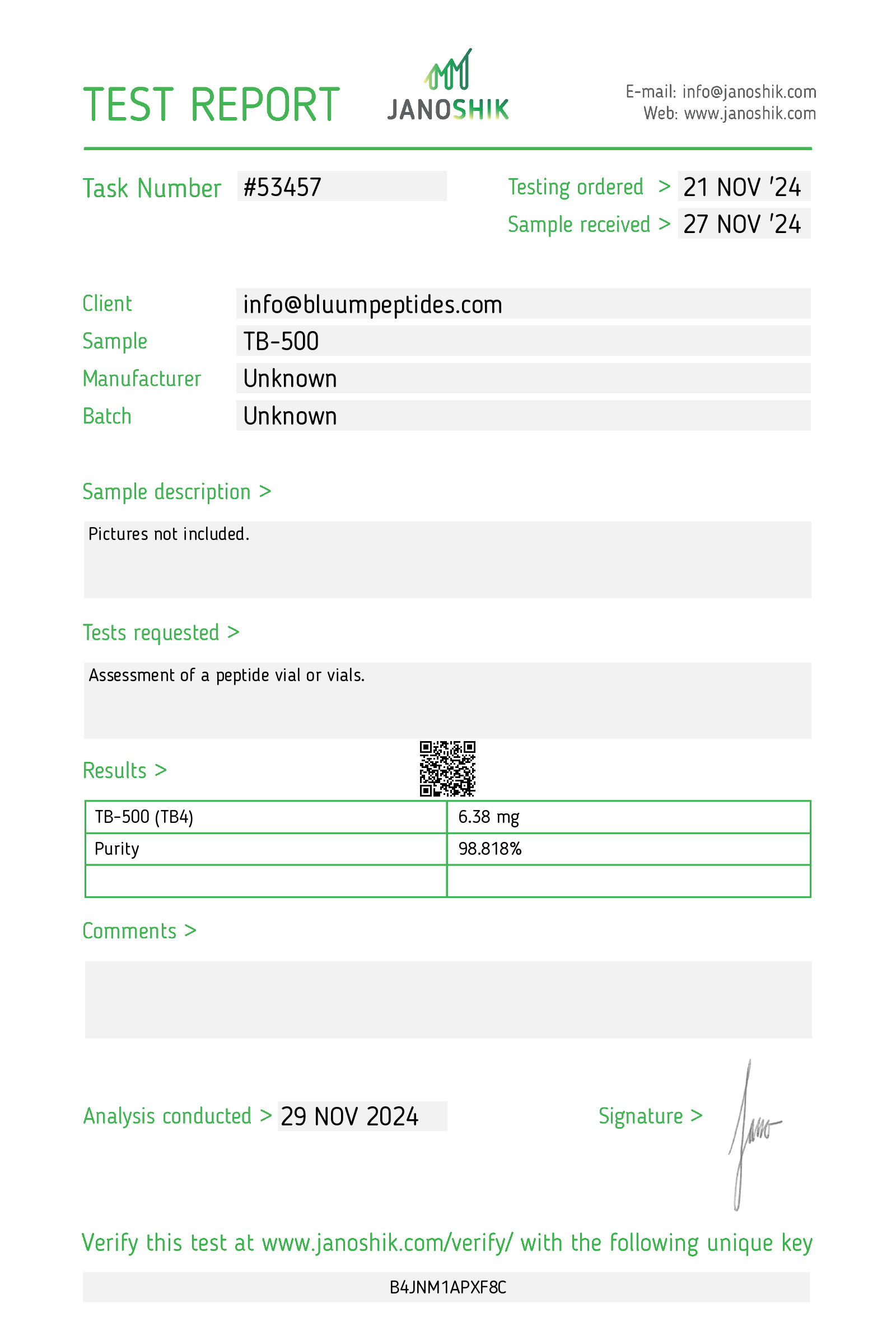

Thymosin Alpha-1
RESEARCH USE ONLY
These compounds are NOT intended for human consumption, clinical use, or veterinary applications. We are not affiliated with any pharmaceutical companies or their commercial medications. By placing an order, you certify these materials will be used exclusively for in vitro testing and laboratory experimentation only. Bodily introduction of any kind into humans or animals is strictly forbidden by law. This product should only be handled by licensed, qualified professionals. This product is not a drug, food, or cosmetic and may not be misbranded, misused or mislabeled as a drug, food or cosmetic.

About Thymosin Alpha-1
Thymosin Alpha 1 is a synthetic peptide that has been studied for its role in modulating immune pathways and cellular processes. Research has explored its potential applications in areas such as immune response cellular signaling and mechanisms related to homeostasis and tissue dynamics. Its properties have made it a focus of interest in studies involving regulatory functions within biological systems.
| Thymosin Alpha-1 Product Specifications | |
|---|---|
| Application | |
| Appearance | |
| Chemical Formula | |
| PubChem CID | |
| CAS Number | |
| Molecular Weight | |
| Synonyms | |
| Storage |
1) Clinical Overview
Thymosin alpha 1 (Ta1, thymalfasin) is a 28–amino acid thymic peptide that functions as an immunomodulator. It enhances T-cell and dendritic-cell activity, biases responses toward Th1 immunity, up-regulates antigen presentation (e.g., MHC-I), and modulates Toll-like receptor (TLR)–dependent signaling (notably TLR9 and TLR2) to increase cytokines such as IL-2 and interferons. Ta1 has been marketed internationally (as Zadaxin®/thymalfasin) but is not FDA-approved in the United States; historical company filings note approvals in >30 countries, primarily in Asia, the Middle East, and Latin America.
2) Human Clinical Findings
Chronic Hepatitis B (CHB)
In HBeAg-positive CHB, adding Ta1 (1.6 μg three times weekly) to interferon showed a trend toward higher HBeAg loss vs interferon alone at 72 weeks (45.8% vs 28.0%; difference 17.8%, P=0.067), without significant differences in secondary endpoints. In anti-HBe, HBV-DNA–positive CHB, a randomized study of Ta1 monotherapy vs no treatment found no increase in major virologic response rates, though ALT reductions were observed and treatment was well tolerated.
Sepsis
The multicenter ETASS randomized trial (n=361 severe sepsis) reported lower 28-day mortality with Ta1 vs control (26.0% vs 35.0%; RR 0.74, 95% CI 0.54–1.02; log-rank P=0.049) and improved monocyte HLA-DR recovery; no serious drug-related adverse events were recorded. However, a large 2024 randomized trial (“TESTS,” BMJ) did not show a mortality reduction at 28 days (authors concluded no clear evidence Ta1 decreases 28-day mortality) .
Viral vaccine adjuvant
Reviews and small clinical/pilot studies (e.g., hemodialysis or immunocompromised cohorts) suggest Ta1 can enhance influenza vaccine immunogenicity, though many studies are small or single-center and heterogeneous in endpoints. FDA staff’s 2024 synthesis likewise characterizes the vaccine-adjuvant evidence as limited and variable in quality.
COVID-19 (observational and meta-analyses)
Evidence is mixed: a 2022 meta-analysis found no statistically significant benefit of Ta1 on mortality in hospitalized adults overall, while other analyses suggest signals in certain subgroups but emphasize the need for RCTs. A multicenter cohort reported association with worse “non-recovery” when confounding was accounted for, underscoring uncertainty and timing/selection biases.
3) Mechanism & Effects
Ta1 promotes dendritic-cell maturation and antigen presentation via TLR9/MyD88 pathways, priming Th1 responses and IFN signaling; it also modulates MAPK/NF-κB cascades and increases MHC-I/viral-antigen expression, improving immune recognition of infected or malignant cells. These mechanisms underpin its study as an adjunct in infections (HBV/HCV, sepsis), vaccine adjuvancy, and oncology combinations.
4) Safety & Considerations
Across controlled studies and reviews, Ta1 is generally well tolerated; common issues are mild local injection reactions and transient flu-like symptoms when combined with interferon. ETASS reported no serious drug-related adverse events. Narrative reviews summarize a favorable short-term safety profile across varied indications.
Regulatory status
Ta1 is not FDA-approved; U.S. FDA compounding reviews (2024) summarize proposed uses and highlight limitations of the clinical evidence for several indications.
Evidence quality
While immunologic endpoints are reproducible, clinical outcome data are mixed or limited outside specific contexts (e.g., inconsistent results in sepsis and COVID-19; modest or nonsignificant effects in CHB monotherapy). Ta1 should be investigated within rigorously designed research protocols.
References
- Lim SG, et al. Antivir Ther. 2006. Randomized, placebo-controlled Ta1 + interferon vs interferon alone in HBeAg-positive CHB.
- Zavaglia C, et al. Dig Dis Sci. 2000. Randomized Ta1 monotherapy vs no treatment in anti-HBe, HBV-DNA–positive CHB.
- Wu J, et al. ETASS trial. Crit Care. 2013. Severe sepsis RCT; registry NCT00711620.
- BMJ TESTS Trial. 2024. Randomized sepsis trial reporting no clear 28-day mortality benefit .
- Dominari A, et al. World J Exp Med. 2020. Comprehensive mechanistic and clinical review.
- Bozza S, et al. Int Immunol. 2007. TLR9/MyD88/IRF7-dependent DC priming by Ta1; Romani L, et al. Blood. 2004. DC activation and Th1 priming.
- Ershler WB, Carraro G, et al. Vaccine-adjuvant data for influenza (reviews/trials); FDA 2024 review of adjuvant evidence.
- Shang W, et al. 2022 meta-analysis: no overall mortality benefit in adult COVID-19.
- SciClone 10-K (2004/2005): international approvals and non-U.S. marketing of Zadaxin®.
Related Peptides
You ask,
we answer.
Are these peptides quality tested?
Are these peptides quality tested?
Absolutely. Our analytical testing is conducted by Janoshik Analytical, an independent third-party laboratory to verify the identity, purity, and composition of our research products. Each CoA includes purity analysis, peptide sequence confirmation, and date of analysis.
What are typical delivery times?
What are typical delivery times?
Delivery for our free shipping option typically takes 3-5 business days. We ship from right here in the USA to all US addresses. We also provide an option for next day shipping for an extra charge. Please allow 24 hours for processing.
Every package comes with professional packaging, tracking updates via email, and does not require a signature upon delivery.
How should these compounds be stored?
How should these compounds be stored?
Our peptides are shipping in lyophilized form, which is stable at room temperature during transit. Once received, store unopened vials in a cool, dry place.
Are products stable during shipping?
Are products stable during shipping?
Our peptides are shipped in lyophilized (freeze-dried) form, which ensures stability during transit. This powder form is highly stable at room temperature and resistant to temperature fluctuations that occur during shipping.
Research has shown no significant degradation or loss of purity when lyophilized peptides are exposed to room temperature during typical shipping timeframes. Each batch is verified for purity upon production, and our stability testing confirms maintenance of product integrity during standard shipping conditions.
What are your bulk ordering options?
What are your bulk ordering options?
For bulk inquiries and volume pricing, please contact us.
What is your return/refund policy for research peptides?
What is your return/refund policy for research peptides?
All sales are final. Since we're dealing with sensitive research compounds that require strict quality control, we can't accept returns or exchanges.
Questions about your order? We're happy to help - just reach out.
What payment methods do you accept?
What payment methods do you accept?
We accept credit/debit cards, Cash App, and Apple Pay. After you place an order, we'll email you a secure payment link. Please complete payment within 48 hours. Unpaid orders are automatically canceled after that window.
If you don't see the email, check spam/promotion or contact support and we'll resend the link.
Are these peptides legal to buy for research in the USA?
Are these peptides legal to buy for research in the USA?
Yes. When purchased for laboratory/research use only and handled in compliance with all applicable federal, state, and local regulations. We sell reagents labeled “Not for human consumption,” not as drugs or supplements.
Some compounds may be restricted in certain jurisdictions. The buyer is responsible for knowing and following their local rules.
Do I need a business or institutional account to order?
Do I need a business or institutional account to order?
No. Individual researchers, labs, and institutions can order. During checkout you must confirm research intent and agree to our Terms. For certain items or larger orders, we may request additional verification or documentation and reserve the right to decline orders that don’t meet compliance standards.
What is the shelf life/expiration of unopened vials?
What is the shelf life/expiration of unopened vials?
Each lot lists a best-by/expiration on the vial label and COA. As general guidance, lyophilized peptides stored as directed are typically stable 12–24 months (often longer at –20 °C). Short shipping periods at ambient temperature are normal. Actual stability depends on sequence and storage conditions.
